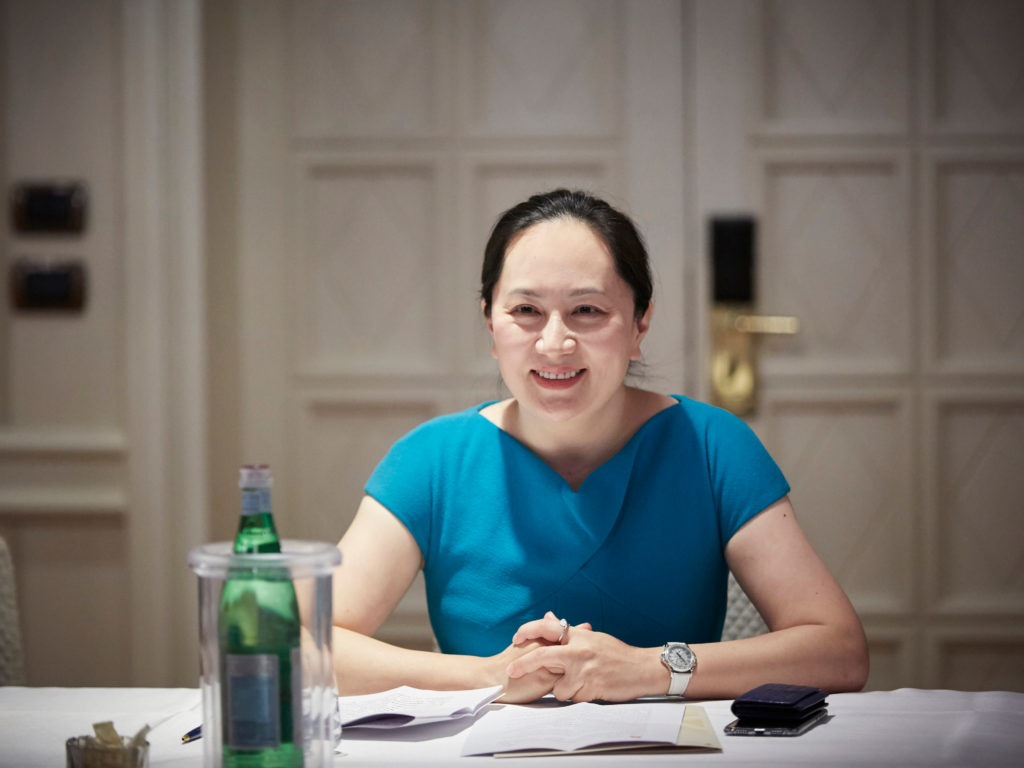
On 18th of August 2021, Associate Chief Justice Heather Holmes reserved judgment in the extradition case of Meng Wanzhou, the Chief Financial Officer of Huawei Technologies, until October 21st when she will give an indication on a possible date for final judgment.
Ms. Meng, who is currently free on bail, was arrested at Vancouver airport in 2018, at the request of the U.S. authorities seeking to extradite and prosecute her for wire fraud and bank fraud in connection with the alleged violation of US sanctions on Iran.
Central to the U.S. case is a 2013 meeting at which Ms. Meng is alleged to have misled HSBC as to the true nature of Huawei’s relationship with its subsidiary, Skycom, and its activities in Iran. On this point, Ms. Meng’s defense argued that she did not act dishonestly in her dealings with HSBC and that the bank had suffered neither material nor reputational loss.
In response to these submissions, counsel for the Canadian Justice Department, acting on behalf of U.S. authorities, argued that despite the “alternative narratives” and inferences that Ms. Meng’s team had asked Justice Holmes to draw, there was sufficient evidence in the case to demonstrate that Ms. Meng acted dishonestly and ought to stand trial in the USA.
Ms. Meng’s defence team have also made four separate applications to stay the proceedings because of alleged abuses of process, which will have to be determined by Justice Holmes. The applications have included arguments that undue political factors motivated the request for extradition, that there have been rights violations by Canadian authorities, and that the U.S. mislead Canada on the strength of the case, and that the U.S. lacked jurisdiction to prosecute a Chinese citizen for actions that took place in Hong Kong.
One key issue is whether based upon the evidence submitted by U.S. authorities, had Ms. Meng’s conduct been transposed to Canada, there would be sufficient evidence to charge her with fraud under Canadian law. If not, then the extradition will fail.
Both sides are expected to appeal any decision handed down by Justice Holmes.
Commentary
The proceedings thus far have seen a fascinating interplay of politics, power, and law. To the Chinese, the US extradition request is simply a weapon in a political and trade war. Their response matches their analysis – total legal bombardment in the extradition proceedings and alleged ‘hostage diplomacy’ in retaliatory prosecutions of Canadians in China. President Trump initially appeared to confirm the Chinese view by suggesting that the charges could be dropped in exchange for trade concessions. However, officially the US denies any political intent, saying that the case is a technical matter of evidence and jurisdictional rules that demonstrate that Meng committed offences under US law. Canada is stuck in the middle, duty-bound to uphold its treaty obligations and the rule of law in deciding whether to extradite.
Meng’s defence team face a challenge familiar to many extradition practitioners: how to attack the underlying prosecution case through the vehicle of the extradition proceedings? Justice Holmes has made clear that questions about jurisdiction and the strength, quality, or admissibility of evidence are for the US trial court should Meng be extradited, not the Canadian court. Therefore, the defence must take an indirect approach, highlighting flaws in the US case as evidence of abuse of process for improper, political motives. To bolster their case, they have added numerous allegations of deceit and manipulation by the US, from the way Meng was arrested through to the suppression of evidence. The ultimate objective is to persuade Judge Holmes that the US case is so tainted by politics, dishonesty, and misconduct that extradition should be barred. Although the judge is allowing Meng’s lawyers to make these arguments, it is far from clear whether she sees any merit in them. If she is satisfied that the US request meets the technical requirements of Canadian law, the bar for holding that it is nevertheless invalidated through impropriety is very high. Despite raising myriad issues, Meng is unlikely to succeed. However, the appeal process could last many years, giving ample time for the Chinese to try and prise Meng out of the US’s grasp through other means, perhaps by somehow persuading or pressurising the US prosecutors to drop the case or by doing a deal. Whether politics or law will prevail remains to be seen.
Tags: Abuse of process Categories: Canada, China, United States



Recent Comments